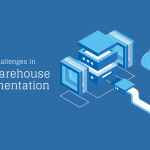Modern data management techniques which include real-time data warehousing are transforming how businesses use awareness. The tools are provided to the businesses that they need to stay on the cutting edge of data-driven decision-making by enabling the consistent integration of streaming data into conventional data warehouse solutions. The continual ingestion and analysis of … [Read more...] about Real-time Data Warehousing: Incorporating streaming data for up-to-date insights
Cloud
Wondering what cloud computing is? Check out these articles to everything you need to know about the cloud, from its history and benefits to how it works.
3 Challenges in Data Backup for Enterprises and how Cloud-to-cloud (C2C) technology resolves them?
Effective data management is crucial for any organization's continuous growth in the digital realm. However, challenges in traditional data backup, like missing files, ransomware attacks, and unexpected downtimes, pose a continuous threat of operational disruption-unimaginable threats. That is exactly why the cloud backup market covering cloud-2-cloud (C2C) backups is scaling … [Read more...] about 3 Challenges in Data Backup for Enterprises and how Cloud-to-cloud (C2C) technology resolves them?
Revolutionizing Manufacturing: Unleashing the Power of Cloud MRP and Cloud Manufacturing Software
Introduction The manufacturing industry is undergoing a digital transformation. From the shop floor to the top floor, manufacturers are leveraging emerging technologies to optimize operations, unlock new capabilities, and gain a competitive edge. A key catalyst of this transformation is the rise of cloud-based manufacturing software. Cloud manufacturing software delivers … [Read more...] about Revolutionizing Manufacturing: Unleashing the Power of Cloud MRP and Cloud Manufacturing Software
How to Select the Right Cloud Provider?
Cloud computing has revolutionized the way businesses operate, offering unparalleled scalability, flexibility, and cost-efficiency. As organizations increasingly embrace cloud technology, choosing the right cloud provider becomes a crucial decision that directly impacts their digital transformation journey. However, with the multitude of cloud providers available in the market, … [Read more...] about How to Select the Right Cloud Provider?
Database Design and Structure: Unraveling the Data Storage of Hospice Software
Hospice and palliative care providers play a critical role in ensuring patients receive the comfort, dignity, and quality of life essential in the last stages of their lives. Providers face numerous challenges in delivering exceptional care while maintaining compliance with stringent regulations, managing complex paperwork, and balancing operational workflows. Fortunately, … [Read more...] about Database Design and Structure: Unraveling the Data Storage of Hospice Software
What is cloud computing?
Cloud computing delivers computing services such as servers, storage, databases, networking, software, analytics, and intelligence — over the Internet (“the cloud”) to offer faster innovation, flexible resources, and economies of scale.
Cloud computing makes it possible to quickly create and deploy a shared pool of reconfigurable computing resources (such as networks, servers, storage, applications, and services) via a network while requiring little administration labor or service provider contact. In order to achieve coherence and scale economies, cloud computing depends on resource sharing.
Want to learn more about cloud computing? Datafloq has courses available. Contact us to get started.
How does cloud computing work?
Cloud computing is a new way of storing and accessing data. Instead of having a physical storage device, like a hard drive, cloud computing uses remote servers to store data.
With the cloud, you can access data from anywhere, as long as you have an internet connection. To use cloud computing, you first need to sign up for a service. Once you have done this, you can start uploading files to the cloud. These files are then stored on the servers and can be accessed anytime.
Who invented cloud computing?
In the early 1960s, American psychologist and computer scientist J.C.R Licklider came up with the idea of an “Intergalactic Computer Network”, which he envisioned as a way for computers to share data and resources. Other researchers later expanded upon this concept, and in the 1990s, the term “cloud computing” was coined.
How secure is cloud computing?
Fortunately, most cloud providers take security seriously and take steps to protect their customers’ data. For example, most providers encrypt data in transit using SSL/TLS, and many offer additional features like two-factor authentication and password recovery.
However, no system is perfect, and it’s important to remember that the ultimate responsibility for security rests with the customer. That means keeping your passwords safe and ensuring that only authorized users can access your account.
What is scalability in cloud computing?
Scalability in cloud computing refers to measuring up or down cloud resources as needed to meet demand. For example, if a company’s website suddenly experiences a surge in traffic, it can quickly scale up its server capacity to meet the demand.
Conversely, they can scale down their servers if traffic decreases to save on costs. This flexibility is impossible with traditional on-premises infrastructure, which can be expensive and time-consuming to scale up or down. As a result, scalability has become one of the key reasons why so many businesses are migrating to the cloud.
Which is an advantage of cloud computing?
Cloud computing is generally known to be secure. The servers used by cloud computing providers are constantly backed up, so your data will still be safe if anything happens to one server. Additionally, cloud computing is very convenient. You can access your data from anywhere worldwide, and you don’t have to worry about losing it if your computer crashes.

